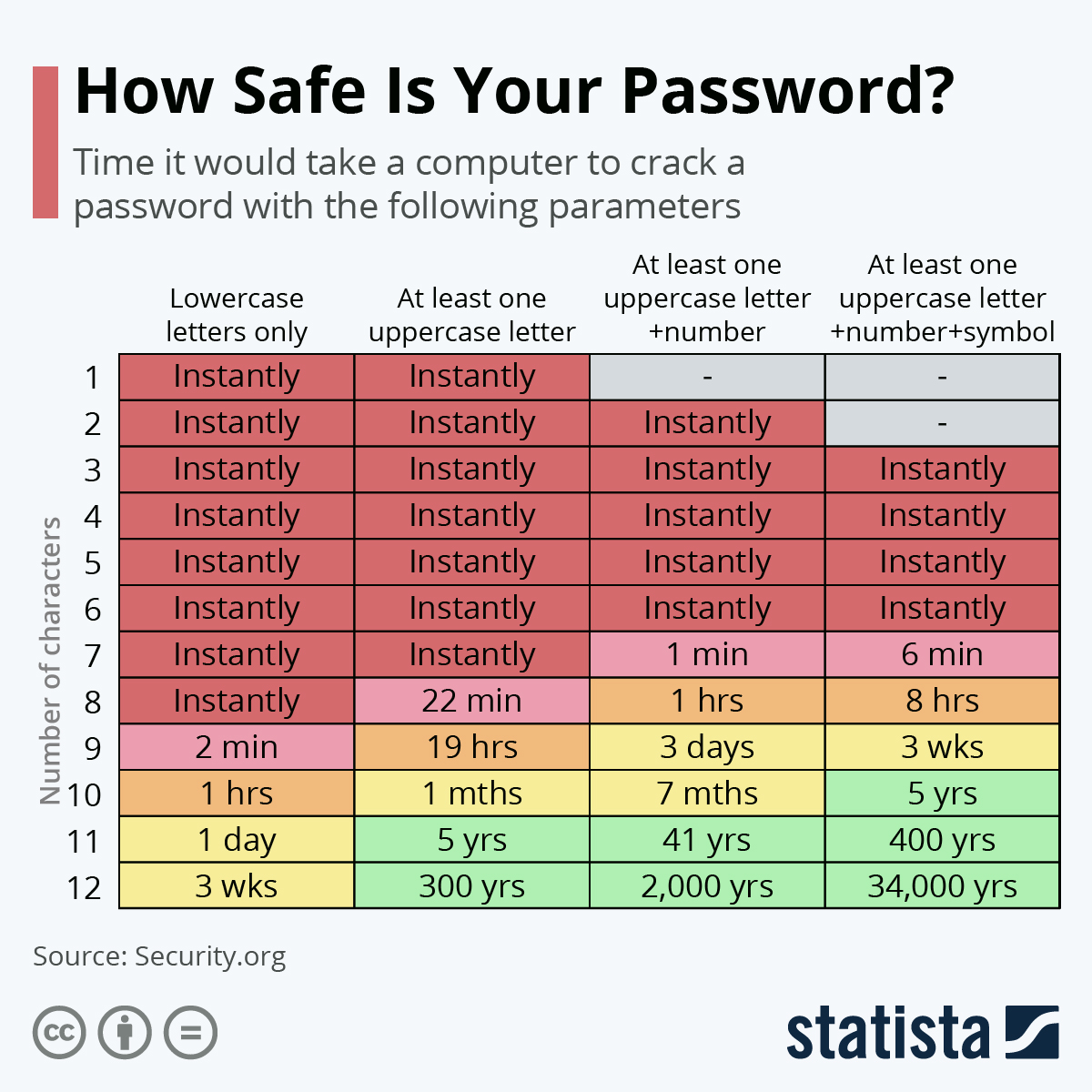Password, 123456, qwerty - while passwords which appear on the list of the most common passwords should definitely be retired from use, even a more unique password can be easy to crack if a computer program is tasked with systematically breaking it.
As seen in data by website Security.org, adding even one upper case letter to a password can already dramatically alter its potential. In the case of an eight-character password, it can now be broken in 22 minutes instead of instantaneously in one second – an increase of more than 1000 percent.
While the added time in this case is definitely not good enough to end up with a satisfactory password, the high security gains of using characters other than lower case letters can be multiplied. When using at least one upper case letter and one number, an eight-character password now would take a computer 1 hour to crack. Add another symbol and it takes eight. To make a password truly secure, even more characters or more than one uppercase letter, number or symbol can be added. A twelve-character password with one uppercase letter, one number and one symbol is almost unbreakable, taking a computer 34,000 years to crack.
This happens because when we use more types of characters, the potential combinations making up the password increase exponentially. With just 26 lower case letters, a password of eight characters has 26^8, so around 209 billion possible combinations. Adding the uppercase, we already arrive at 52^8, around 53.5 trillion combinations. With the numbers in there, it’s 62^8 or 218 trillion combinations. Symbols add another great potential for security, but since only the handful displayed on computer keyboards are convenient to use, this ups the number of combinations once more to around 90^8 or 430 trillion combinations.





















